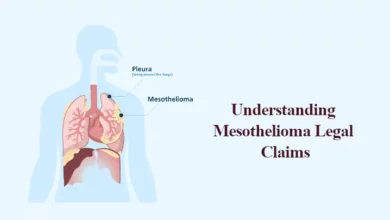What Are Common Liver Problems: How Affect Quality Of Life?

As a vital organ, your liver carries out several functions to help keep your body in great shape. Some of its functions include regulating blood clotting, clearing bilirubin, producing bile that transports toxins out of your body, separating waste products from the nutrients in your body, and moving them through your digestive system.
However, several factors can affect your liver and create life-threatening situations that affect your quality of life. Some factors that cause liver problems include personal lifestyle practices and other genetically inherited conditions.
This article will discuss common liver diseases, their causes, and how they affect one’s quality of life. Let’s get started.
What Are Common Liver Problems?
Liver problems or diseases are health conditions that cause harm to your liver. Some liver diseases can cause scarring, where scar tissues replace your healthy liver tissues, preventing your liver from functioning effectively. Below are some common liver problems.

1. Non-alcoholic Steatohepatitis (NASH)
What is NASH? NASH is a fatty liver disease caused when the significant buildup of fat in the liver cells turns into inflammation and causes scarring of the liver (fibrosis). It isn’t caused by alcohol. Some causes of NAFLD/NASH include obesity, high cholesterol, and type 2 diabetes. If this condition isn’t attended to in time, it could result in liver cancer and, worse still, death.
2. Liver Cancer
Liver cancer is one of the most typical cancer diseases, and several cancers can start in the liver cells. Liver cancer often occurs when the liver cells mutate. Some risk factors for liver cancer include diabetes, cirrhosis, genetic liver diseases, and excess alcohol consumption.
3. Hepatitis
Although these are some of the various factors that cause this problem, a virus, toxin, or an autoimmune response from your immune system can cause infections in your liver, which is hepatitis. One of the characteristics of hepatitis is an inflamed liver, but sometimes, when the liver is healthy and strong enough, it often regenerates. But other times, liver failure can stop the liver from healing itself.
4. Cirrhosis
Causative factors of cirrhosis include toxins, hepatitis, and alcohol, and cirrhosis is caused by fibrosis – a health condition where scar tissues override and replace healthy liver cells. When this goes on for too long without medical attention, it leads to liver failure because the liver cells cannot function as they should.
5. Fascioliasis
The primary cause of this liver disease is the liver fluke – a parasitic worm that invades the liver. The liver fluke doesn’t always damage the liver immediately after it gains access to it; it can be dormant for several years or months before causing any damage.
6. Alcoholic Liver Disease
We all need the occasional glass of good wine to compliment our pasta, but that should be all. This liver disease is caused by excess intake of alcohol over long periods and can, in the long run, lead to liver failure.
7. Fatty Liver Disease
Your liver contains a healthy amount of fat, but it becomes a problem when it increases. Often caused by alcohol abuse, obesity, or both, fatty liver disease occurs when there is a significant buildup of fat in your liver cells. However, your liver can still function properly when the fat builds up, but fatty liver disease worsens over time and causes liver failure.
The stages through which fatty liver disease occurs include inflamed liver or steatohepatitis, fibrosis which allows scar tissues to form on your damaged liver, and cirrhosis, where the scar tissues replace your healthy liver tissues.
8. Gilbert’s Syndrome
Gilbert’s syndrome is a genetic disorder often considered a mild disorder that isn’t as harmful as other liver diseases. It occurs when the body is incapable of completely breaking down bilirubin.
9. Primary Sclerosing Cholangitis
Bile ducts transport digestive bile from your liver to your small intestine. PSC inflames the bile ducts and damages them over time, and the resultant effect of this is liver failure. Currently, there are no known causes and cures for PSC.
How Do Liver Problems Affect One’s Quality of Life?
Good health is often underrated. We swing through our daily activities without realizing how important it is to care deeply and extensively for our health. One such way to care for ourselves is to practice healthy lifestyles; exercise, eat healthy foods, sleep well, reduce alcohol intake, and be attentive to any change you might feel in your body.
When we don’t practice these habits, we risk exposing our vital organs, like the liver, to damage, which affects our quality of life. Patients with liver diseases notice a decline in their energy levels, finding it difficult to carry on with their daily lives effectively. They also face challenges with their psychological and mental health.
Patients can get better with treatment, and if a liver transplant is carried out, patients could return to their everyday lives in six months. However, long-term care and medications are required to ensure that the body does not reject the new organ.
Ready To Care Better For Your Liver?
As stated earlier, you’d need to practice a healthy lifestyle to keep your liver in check. A professional doctor can get you started on this journey, and if you already notice warning signs, you should reach out to a doctor sooner.





